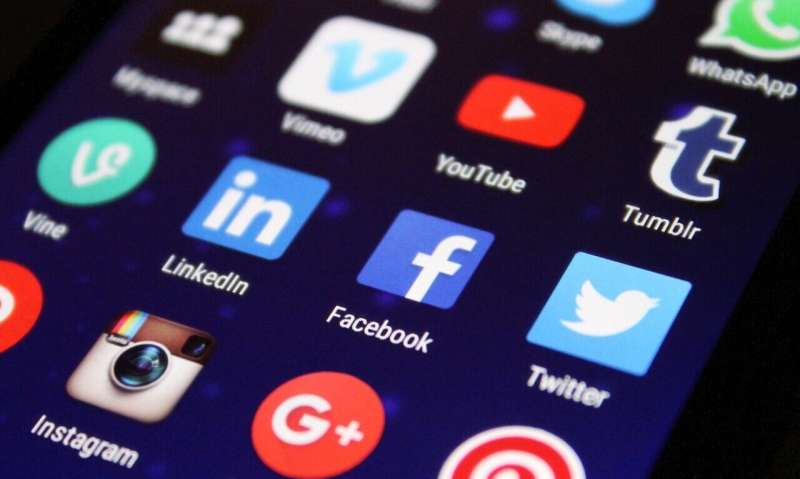Credit: CC0 Public Domain
A new study based on Twitter activity related to the 2018-19 flu season found tweets that express concerns about vaccines were associated with negative attitudes about flu vaccinations.
The findings, published by the University of Pennsylvania Annenberg Public Policy Center, come at a particularly important time when public health messaging, specifically about vaccines, are under attack by anti-vaxxers and misinformation campaigns. For instance, Plandemic, a conspiracy theory video regarding the coronavirus that was first posted to social media, has spread like wildfire in recent months.
"We see it personally, and there's data nationally. Social media and disinformation can and does have the ability to create negative perceptions of vaccines," said Todd Wolynn, CEO and pediatrician at Kids Plus Pediatrics, who was not involved in the study.
In 2017, Wolynn posted a public service announcement about the benefits of vaccines in the practice's Facebook page. Weeks later, they received over 10,000 attacks on their Facebook page from an anti-vaccine group. The attack motivated Wolynn and his colleagues to start a non-profit, Shots Heard Round the World, to address anti-vaccine bullies and related misinformation.
Vaccine-related disinformation has flourished in recent years through social media efforts driven by people who are against vaccinations. Often these anti-vaccine messages rely on sensationalism and harnessing fear to grab people's attention and reach the widest audience on social media. What hasn't been studied, until now, is how social media messages affect actual vaccination behaviors.
The Penn study analyzed 115,330 geolocated tweets about the flu and vaccination as well as data from a survey of 3,005 U.S. adults conducted from September 2018 to May 2019, and found that some Twitter discussions had negative influences on people's perceptions and vaccine behavior. Furthermore, people who were exposed to the online content were less likely to get a flu shot.
"This study fills an important gap about a very critical topic," said Vish Viswanath, a professor of health communication at the Harvard T. H. Chan School of Public Health, who was not involved in the study. "Particularly in the context of COVID-19, when and if a vaccine is available, will people take it?"
The recent findings underscore the growing need for effective public health messaging about vaccines. While social media content can negatively affect vaccination attitudes and behaviors, the study found that real-life discussions with family and friends can eliminate them. Trusted healthcare providers are also essential for these conversations.
"What's upon us is a unique situation. We (healthcare professionals) have to be on these platforms; social media is a parcel of influencing people and health outcomes on a broader scale," Wolynn said.
Viswanath noted that Twitter is only one social media platform, and the effects of the spread of misinformation on WhatsApp, Facebook and Instagram have been relatively understudied.
"It only takes a finger," Viswanath said, to post or share content, regardless of whether it's actually backed by science.
Besides social media platforms taking responsibility, "Institutions that have credibility need to be more proactive to minimize the spread of falsehoods," he said.
But even large organizations like the American Medical Association or the American Academy of Pediatrics may not reach the most vulnerable communities.
"If there is one issue that keeps me awake, it's this issue," Viswanath said. "We really have to be prepared with our communication strategies and go beyond our convenient channels, otherwise anti-vaccine groups can hijack the information."
In the same way a virus spreads undetected, misinformation can continue to spread. The vaccine for misinformation includes effective communication and health literacy.
"The more people we can get to have the skill to look at the information they consume on social media and stop and stay, 'does this make sense and is factual', the more we can inoculate the public against the spread of misinformation," said Beth Hoffman, a Ph.D. student at the University of Pittsburgh Graduate School of Public Health.
©2020 The Philadelphia Inquirer
Distributed by Tribune Content Agency, LLC.























